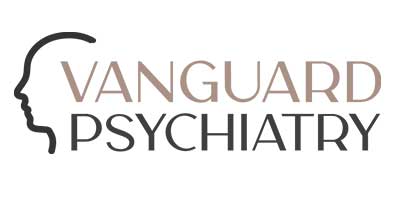ADHD
Assessment and Treatment of ADHD
You often feel your ‘to-do’ list at your job is overwhelming, and you have misplaced important items such as car keys, glasses, or your wallet too many times to be normal. Or maybe you have had a friend jokingly say, “you may have ADHD”, and now you feel you may need some help.
What is ADHD, and what does it look like if you or someone you know suffers from it? Is there a treatment or even a cure for ADHD?
Attention Deficit Hyperactivity Disorder (ADHD): Understanding the Symptoms and Treatment
ADHD affects children and adults in various ways and is highly heritable. Children with this diagnosis might benefit from parent training/behavioral treatment and/or medication. And 2/3 of children with ADHD continue to have symptoms in adulthood.
ADHD is a disorder that affects the brain and how well a person can pay attention and/or control hyperactive/impulsive behaviors. A person with this disorder might be:
- Distractible
- Hyperactive or impulsive
- High stimulation seeking
- Disorganized
- A procrastinator
- Struggling with problem-solving, listening, and time management
Despite these challenges, individuals suffering with ADHD can learn techniques to help deal with their symptoms and lead productive lives.
When a child exhibits these symptoms, his primay care provider will probably order hearing and vision tests to determine if the problem originates with these sensory systems. After this is ruled out, they will probably refer you to a mental health provider that will administer questionnaires and/or tests to determine their areas of difficulty, including behaviors, social skills, and psychological function. Males are more likely to have this diagnosis, with a ratio of 4:1, and predominantly present with hyperactive/impulsive symptoms that might include non-stop talking, fidgeting or inability to sit still, and impatience. Conversely, females are more likely to exhibit inattention and appear to be daydreamers, lack motivation, struggle to complete assignments, or have difficulty listening.
We Provide An Evidence-Based Approach To Treatment
Adults with ADHD may experience a decrease in intensity from their childhood symptoms, however they may continue to impact mental health, causing stress and frustration, relationship problems, debt, and a vulnerability to substance abuse. Therefore, adult diagnosis often relies on the person’s recall of their childhood experiences and how these problems may be impacting their lives now. Questions which may help determine diagnosis include whether they’re having difficulty finalizing projects, losing things, feeling overly fidgety during meetings, becoming bored easily, making careless mistakes, talking too much in social situations, or interrupting others when they are talking.
Treatment may include working with a behavioral therapist and/or psychiatric provider, and a maintaining a healthy lifestyle. These mental health professionals will help them develop strategies to get more organized, retain information, develop/maintain a healthy lifestyle, and prescribe medication if necessary
How Can Vanguard Psychiatry Help?
Chris’s Story
Take the example of Mike and Kim, who have an 11-year-old son, Chris, diagnosed with ADHD when he was seven years old. At that time, Chris was prescribed Adderall, and for several years this has helped him focus better during class. However, recently Chris has gotten into trouble at school for talking back to his teacher.
How can Vanguard Psychiatry help Chris?
Working with a trained psychiatric professional can help demystify the symptoms you are experiencing and help you find solutions. At Vanguard Psychiatry we understand that mental health treatment is not a “one size fits all” approach, and each person’s experience is unique. Dr Defilippo will explore solutions that will provide relief and help you enjoy life again.




